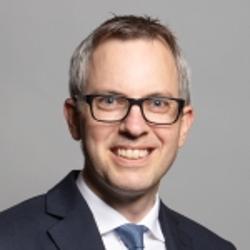Audiology: Children
(asked on 15th October 2024) - View SourceQuestion to the Department of Health and Social Care:
To ask the Secretary of State for Health and Social Care, what steps his Department is taking to ensure adequate numbers of (a) auditory verbal therapists and (b) other specialist workers for babies, children and young people with speech, language, and communication needs.
NHS Audiology services, including support for non-hearing children, are locally commissioned, and the responsibility for meeting the needs of non-hearing children lies with local National Health Service commissioners.
NHS England is supporting the integrated care boards (ICBs) to make informed decisions about the provision of audiology services so that they can provide consistent, high quality, and integrated care to non-hearing children. In 2019, NHS England, with input from the National Deaf Children’s Society, produced a guide for commissioners and health and local authority providers which supports non-hearing children and young people, which is available at the following link:
https://www.england.nhs.uk/wp-content/uploads/2019/11/what-works-chswg-guide.pdf
The Department recognises the need to improve access to therapies generally. Since September 2020, all eligible allied health profession students have received a non-repayable training grant of a minimum of £5,000 per academic year. NHS England and the Department for Education are also working in partnership to co-fund £10 million for nine Early Language Support for Every Child pathfinder sites over two years, starting from September 2023, to provide early identification, targeted, and universal support for children with speech, language, and communication needs in both early years and primary school settings, and more timely referrals for specialist support if required.
NHS England met with Auditory Verbal UK (AVUK) last year and discussed the need for more higher-level research evidence for the intervention and to develop evaluations of impact. AVUK was also invited to join the Chief Scientific Officer’s Audiology stakeholder group.

